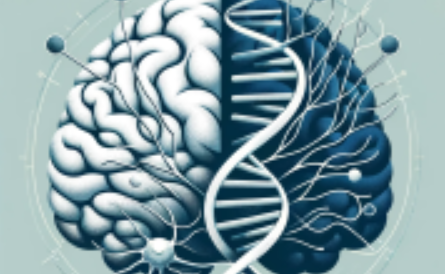Exploratory genetic analysis in children with autism spectrum disorder and other developmental disorders using whole exome sequencing
DOI:
https://doi.org/10.17305/bb.2024.10221Keywords:
ASD, developmental disorders, genes, whole exome sequencingAbstract
Developmental disorders (DDs), such as autism spectrum disorder (ASD), incorporate various conditions; once identified, further diagnostics are necessary to specify their type and severity. The aim of this exploratory study was to identify genetic variants that can help differentiate ASD early from other DDs. We selected 36 children (mean age 60.1 months) with DDs using Developmental Behavioral Scales (DBS) through “EDUS-Education for All”, an organization providing services for children with developmental disorders in Bosnia and Herzegovina. We further rated children's autistic traits with the preschool version of the Childhood Autism Rating Scale, second edition (CARS-II). We defined ASD if scores were >25.5 and other DDs if scores were <25.5. Diagnosis of ASD and DD were independently confirmed by child psychiatrists. Whole exome sequencing (WES) was performed by Veritas Genetics, USA, using Illumina NovaSeq 6000 (Illumina Inc., San Diego, CA, USA) next-generation sequencing (NGS) apparatus. We tested genetic association by applying SKAT-O, which optimally combines the standard Sequence Kernel Association Test (SKAT) and burden tests to identify rare variants associated with complex traits in samples of limited power. The analysis yielded seven genes (DSE, COL10A1, DLK2, CSMD1, FAM47E, PPIA, PYDC2) to potentially differentiate observed phenotypic characteristics between our cohort participants with ASD and other DDs. Our exploratory study in a small sample of participants with ASD and other DDs contributed to gene discovery in differentiating ASD from DDs. A replication study is needed in a larger sample to confirm our results.
Citations
Downloads

Downloads
Additional Files
Published
Data Availability Statement
The datasets generated during and/or analyzed during the current study are available from the corresponding author on reasonable request.
Issue
Section
Categories
License
Copyright (c) 2024 Edin Hamzic, Lemana Spahic, Nirvana Pistoljevic, Eldin Dzanko, Sanela Pasic, Lejla Kadrić, Fadila Serdarevic, Aida Hajdarpasic

This work is licensed under a Creative Commons Attribution 4.0 International License.
How to Cite
Accepted 2024-02-02
Published 2024-02-06









